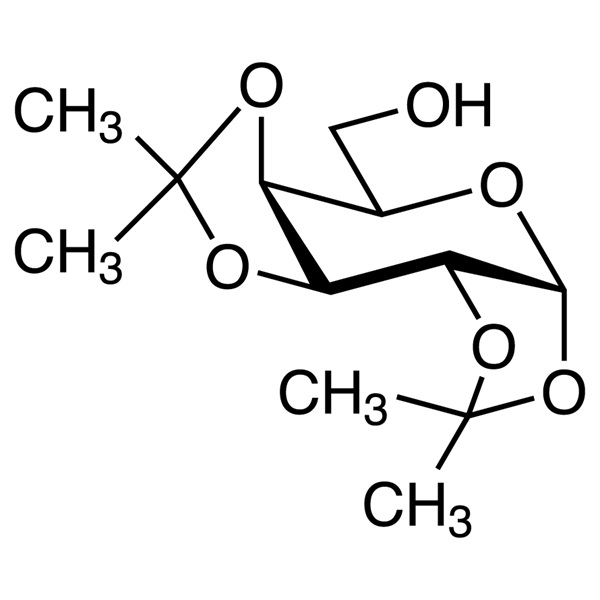Diacetone-D-Galactose CAS 4064-06-6 Assay >97.0% (GC)
Shanghai Ruifu Chemical Co., Ltd. is the leading manufacturer of 1,2:3,4-Di-O-Isopropylidene-α-D-Galactopyranose (Diacetone-D-Galactose) (CAS: 4064-06-6) with high quality. Ruifu Chemical has 15 years experience in carbohydrate chemistry. Our R&D center is located in Shanghai and has two factories in China. Ruifu Chemical can provide worldwide delivery, competitive price, excellent service, small and bulk quantities available. Purchase carbohydrates, Please contact: alvin@ruifuchem.com
| Chemical Name | 1,2:3,4-Di-O-Isopropylidene-α-D-Galactopyranose |
| Synonyms | Diacetone-D-Galactose; 1,2:3,4-Di-O-Isopropylidene-alpha-D-Galactopyranose; 1,2:3,4-Di-O-Isopropylidene-alpha-D-Galactose; 1,2:3,4-Di-O-Isopropylidene-D-Galactose |
| Stock Status | In Stock, Commercial Production |
| Source | Synthetic |
| CAS Number | 4064-06-6 |
| Molecular Formula | C12H20O6 |
| Molecular Weight | 260.29 g/mol |
| Boiling Point | 117℃/0.015 mmHg (lit.) |
| Density | 1.143 g/mL at 25℃(lit.) |
| Refractive Index n20/D | 1.466 (lit.) |
| Store Under Inert Gas | Store Under Inert Gas |
| Sensitive | Moisture Sensitive |
| Solubility | Soluble in Acetone, Chloroform and Methanol |
| COA & MSDS | Available |
| Origin of Product | Shanghai, China |
| Product Categories |
Carbohydrates |
| Brand | Ruifu Chemical |
| Items | Specifications | Results |
| Appearance | White or Slightly Yellowish Syrup | Complies |
| Solubility | Soluble in CHCl3 | Complies |
| Appearance of Solution | 0.5g in 10ml of CHCl3, and the Solution Should be Clear | Pass |
| NMR and ESI-MS | Should Comply | Complies |
| Identification | IR and TLC | Complies |
| Specific Rotation [a]20/D | -57.0° ~ -61.0° (C=3 in CHCl3) | -57.5° |
| Refractive Index nD20 | 1.40 ~1.50 | 1.467~1.469 |
| Density | 1.13~ 1.15 | 1.14 |
| Residue on Ignition | <0.50% | 0.05% |
| Heavy Metals (Pb) | <20ppm | <10ppm |
| TLC (15% H2SO4-C2H5OH) | One Spot | One Spot |
| Assay / Analysis Method | >97.0% (HPLC) | 99.2% |
| Conclusion | The product has been tested and complies with the given specifications | |
Package: Bottle, Aluminium foil bag, 25kg/Cardboard drum with inner plastic bags, or according to customer's requirement.
Storage Condition: Store away from air. Store under dry inert gas. Incompatible with air and oxidizing agents. Keep the container tightly closed and store in a cool, dry (2~8℃) warehouse. Keep away from sunshine; avoid fire and heat sources; avoid moisture.
Shipping: Deliver to worldwide by air, by FedEx / DHL Express. Provide fast and reliable delivery.
How to Purchase? Please contact Dr. Alvin Huang: sales@ruifuchem.com or alvin@ruifuchem.com
15 Years Experience? We have more than 15 years of experience in the manufacture and export of a wide range of high quality pharmaceutical intermediates or fine chemicals.
Main Markets? Sell to domestic market, North America, Europe, India, Korea, Japanese, Australia, etc.
Advantages? Superior quality, affordable price, professional services and technical support, fast delivery.
Quality Assurance? Strict quality control system. Professional equipment for analysis include NMR, LC-MS, GC, HPLC, ICP-MS, UV, IR, OR, K.F, ROI, LOD, MP, Clarity, Solubility, Microbial limit test, etc.
Samples? Most products provide free samples for quality evaluation, shipping cost should be paid by customers.
Factory Audit? Factory audit welcome. Please make an appointment in advance.
MOQ? No MOQ. Small order is acceptable.
Delivery Time? If within stock, three days delivery guaranteed.
Transportation? By Express (FedEx, DHL), by Air, by Sea.
Documents? After sales service: COA, MOA, ROS, MSDS, etc. can be provided.
Custom Synthesis? Can provide custom synthesis services to best fit your research needs.
Payment Terms? Proforma invoice will be sent first after confirmation of order, enclosed our bank information. Payment by T/T (Telex Transfer), PayPal, Western Union, etc.
Hazard Symbols Xi - Irritant
Risk Codes 36/37/38 - Irritating to eyes, respiratory system and skin.
Safety Description S24/25 - Avoid contact with skin and eyes.
S36/37 - Wear suitable protective clothing and gloves.
S26 - In case of contact with eyes, rinse immediately with plenty of water and seek medical advice.
WGK Germany 3
FLUKA BRAND F CODES 3-9-21
HS Code 2940009090
1,2:3,4-Di-O-Isopropylidene-α-D-Galactopyranose (Diacetone-D-Galactose) (CAS: 4064-06-6) is a cyclic sugar molecule that has found use in a variety of scientific applications. It is a derivative of the naturally occurring sugar, galactose, and is synthesized by a variety of methods. It is an important molecule in the field of biochemistry and has been used to study the structure and function of proteins, carbohydrates, and other biological molecules. In addition, it has been used in the synthesis of pharmaceuticals, as well as in the development of new materials.
1,2:3,4-Di-O-Isopropylidene-α-D-Galactopyranose (Diacetone-D-Galactose) (CAS: 4064-06-6) has been used as a starting material for the synthesis of various biologically active molecules such as anti-viral agents, anti-inflammatory drugs, and anti-cancer drugs.
1,2:3,4-Di-O-Isopropylidene-α-D-Galactopyranose (Diacetone-D-Galactose) (CAS: 4064-06-6) has potential applications in various fields of research and industry. Its use as a building block for the synthesis of biologically active molecules makes it an essential tool for medicinal chemistry. Additionally, its use as a starting material for the synthesis of agrochemicals and flavoring agents makes it an important compound for the food and beverage industry.
1,2:3,4-Di-O-Isopropylidene-α-D-Galactopyranose (Diacetone-D-Galactose) (CAS: 4064-06-6) is synthesized through a variety of methods, including chemical and enzymatic synthesis.
1,2:3,4-Di-O-Isopropylidene-α-D-Galactopyranose (Diacetone-D-Galactose) (CAS: 4064-06-6) has been used in a variety of scientific research applications. It has been used to study the structure and function of proteins, carbohydrates, and other biological molecules. It has also been used in the synthesis of pharmaceuticals, as well as in the development of new materials.
1,2:3,4-Di-O-Isopropylidene-α-D-Galactopyranose has been used in the study of enzyme-catalyzed reactions, as well as in the study of the structure of proteins. It has also been used in the synthesis of novel drugs, such as the anticoagulant heparin.
In addition, 1,2:3,4-Di-O-Isopropylidene-α-D-Galactopyranose has been used in the development of new materials, such as polymers and nanomaterials.
Future directions for the use of 1,2:3,4-Di-O-Isopropylidene-α-D-Galactopyranose include further research into its biochemical and physiological effects, as well as its potential applications in drug development and materials science. In addition, further research into its mechanism of action may lead to the development of new therapeutic agents. Further research into its ability to interact with proteins, carbohydrates, and other molecules may lead to new methods of targeting specific molecules for drug delivery. Finally, further research into its ability to interact with cellular membranes may lead to new methods of controlling the transport of molecules across the membrane.
-
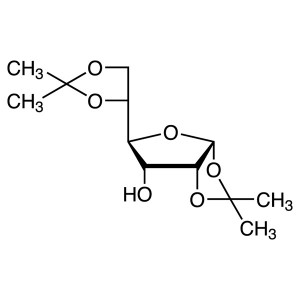
Diacetone-D-Allofuranose CAS 2595-05-3 Assay >9...
-
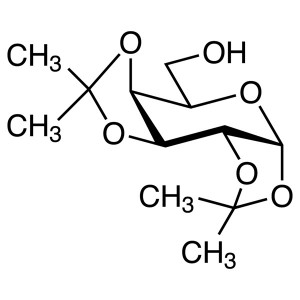
Diacetone-D-Galactose CAS 4064-06-6 Assay >97.0...
-
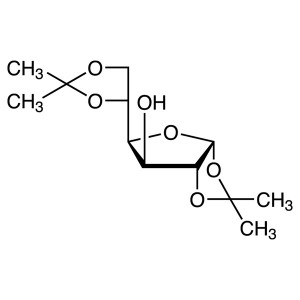
Diacetone-D-Glucose CAS 582-52-5 Assay >99.0% (...
-
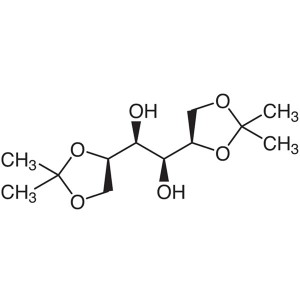
Diacetone-D-Mannitol CAS 1707-77-3 Assay >98.0%...
-
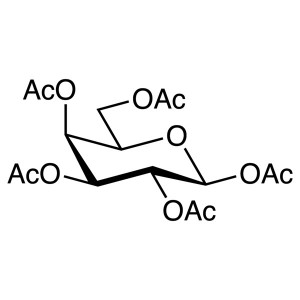
β-D-Galactose Pentaacetate CAS 4163-60-4 Assay ...
-
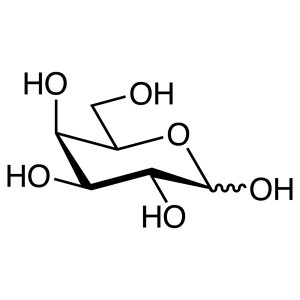
D-(+)-Galactose Anhydrous CAS 59-23-4 Assay >98...
-
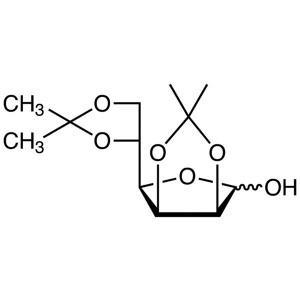
Diaceton-alpha-D-Mannofuranose CAS 14131-84-1 A...

